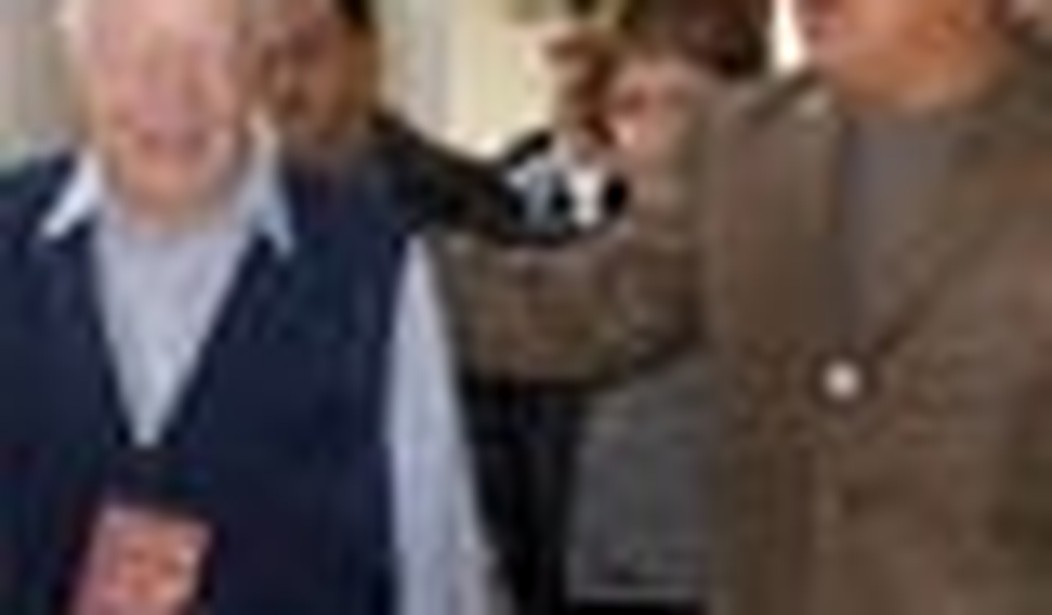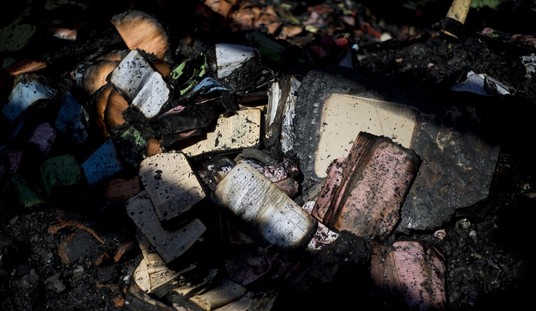Author A.C. Clark grew up in Venezuela, so it pains him to watch his homeland suffer even though he now calls the U.S. home. Even worse for Clark is having to see the man responsible for the nation’s decline, President Hugo Chavez, trumpeted as a hero in intellectual circles and Hollywood instead of as a villain.
Clark’s new book — The Revolutionary Has No Clothes: Hugo Chavez’s Bolivarian Farce — dresses down Sean Penn’s friend, exploring the grand misstatements, poverty-inducing policies, and thuggish behavior:
Life in Venezuela has become extraordinarily difficult for ordinary Venezuelans. There‘s an exodus of people leaving the country.
He wrote the book to illustrate the collapse of his homeland, but also to show his shock at the “lack of seriousness and misinformation being spread about Chavez and his agenda.” Why are so many people on the left rushing to his defense?
“A major motivating factor was the shock that it produced in me to see all these academic and intellectuals who just love this guy,” Clark says. “They don’t know what they’re talking about.”
A case in point is director Oliver Stone’s upcoming documentary South of the Border, which slams the U.S. media for painting Chavez in an unflattering light. It’s almost as silly as the Obama administration speaking out against the media’s harsh treatment of its policies.
Clark can’t pin down why Chavez has so many defenders. He figures part of his appeal is the leader’s hatred for former President George W. Bush, something the left clearly appreciates. Still, it doesn’t explain the movement as a whole. One theory Clark offers is self-hatred in the West. He also suggests that Chavez is a symbol for some of a longed-for utopia — “even if,” Clark says, “there’s little of that in reality.”
Clark recalls a depressing chat he once had with a university professor and self-avowed Chavez backer. Clark asked him his thoughts on Chavez changing existing Venezuelan law to rule the country indefinitely. “He has long-term plans,“ the professor explained. Clark writes:
I couldn’t believe it. Had [George W.] Bush perpetuated himself in power they wouldn’t put up with it, but they put up with it if it’s happening far away.
Revolutionary begins with a historical snapshot of Venezuela’s early years.
“The only period of stability Venezuela had was from 1961 to 1998, and this is precisely the period [Chavez] demonized,” says Clark, adding that those were the years when he lived in the country. The book soon reunites with its subject, a man whose proclamations and actions often beggar belief. The Chavez regime leans heavily on nepotism, strong-arm tactics, and a stranglehold on media outlets to maintain its power.
Clark, who provides video links at the back of his book to many of the sources he cites, says it’s easy for some to laugh off Chavez’s ego-driven rants:
He’s so clownish. It’s hard not to point that out. I don’t want to blunt the force of the other side. He is dangerous. … Here’s a man who has confessed to a deep hatred of the West and, above all, the U.S.
And Chavez has plenty of oil at his disposal and routinely gobbles up missiles, tanks, and rifles to bulk up his army.
Since Clark wrote the book, Venezuela has partnered up with Iran, which only adds to U.S. concerns given the former‘s uranium supply:
I don’t have the evidence but you have to be a fool to not realize Chavez would want to give it to [Iranian president Mahmoud] Ahmadinejad.
Clark isn’t an investigative reporter or a detective. He found much of the material for the book online, thanks to documents available for anyone to see. “It’s all in the public record,” he says.
Clark uses a pen name to protect family members still living in Venezuela. He doesn’t fear for their lives, but he notes in the book that the Chavez administration can make life difficult for those who dare to criticize the country’s leader.
Chavez returned briefly to the news a few weeks ago when he addressed the United Nations. The speech, full of the leader’s bloviations, got little coverage in the U.S. media. Clark says:
If you had a screenplay and the head of state said imbecilic things it wouldn’t work. It’s not credible.
Clark hopes his book will be part of an overall process to make people realize the full scope of Chavez’s reign and its implications. He isn’t optimistic:
He’ll continue arming himself, creating trouble. At some point it’s no longer possible to ignore him, but by then worse suffering will be caused.









Join the conversation as a VIP Member